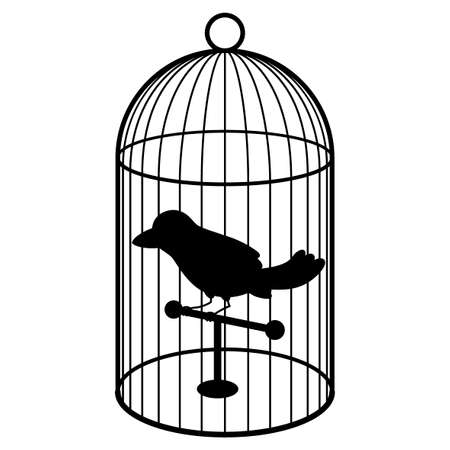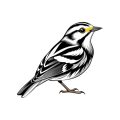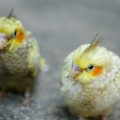Understanding Your Bird’s Needs
Choosing the right bird cage is about so much more than simply finding a box to contain your feathered companion. Every bird, whether a cheerful budgie or a dignified African grey, has unique behaviours and personalities that directly influence their housing needs. Before you make a purchase, it’s crucial to consider how your bird will live, play, and thrive within their new home. Cages must provide not only safety but also comfort and opportunities for enrichment, echoing the environments that nurture well-being in the wild.
Birds are intelligent, social creatures who require mental stimulation and space to express their natural instincts. For instance, finches prefer horizontal flight space for flitting from perch to perch, while parrots need robust bars and room for climbing and chewing toys. Below is a simple overview of how common UK pet birds differ in their requirements:
| Species | Key Behaviours | Recommended Cage Features |
|---|---|---|
| Budgerigar (Budgie) | Active, playful, enjoys flying | Wide horizontal space, multiple perches, swings |
| Canary | Sings, prefers hopping | Long cages for short flights, soft perches |
| Cockatiel | Affectionate, likes climbing | Tall cages with strong bars, ladders and toys |
| African Grey Parrot | Highly intelligent, chews frequently | Sturdy materials, secure locks, plenty of enrichment items |
No matter which species you care for, always remember: a cage should be a sanctuary that offers security and supports your bird’s wellbeing. The most compassionate choice is one that puts your bird’s happiness first—creating a loving environment where they can spread their wings both literally and figuratively.
2. Choosing the Right Cage Size
When selecting a bird cage in the UK, providing enough space is not just a matter of comfort—its essential for your feathered companion’s health and happiness. Birds need room to stretch their wings, hop, fly short distances, and engage in natural behaviours that keep them physically and mentally stimulated. Cramped conditions can lead to stress, obesity, and even behavioural issues.
Why Size Matters
Each species has unique needs. Generally, the larger the cage, the better. For commonly kept birds in Britain—such as budgies (parakeets), cockatiels, canaries, and finches—the minimum recommended cage sizes ensure there’s ample space for exercise and play. It’s vital to remember that these are minimums; whenever possible, go bigger to enhance your birds quality of life.
Minimum Cage Size Guide for Popular UK Pet Birds
| Bird Species | Recommended Minimum Cage Size (cm) | Notes |
|---|---|---|
| Budgerigar (Budgie) | 60L x 40W x 50H | Sufficient for flying from perch to perch; larger always preferred |
| Cockatiel | 80L x 50W x 80H | Height is important for climbing; horizontal bars aid movement |
| Canary/Finch | 60L x 35W x 45H | Longer cages support flight; avoid round cages |
| Lovebird | 80L x 50W x 80H | Pairs need more room; allow for toys and swings |
Cage Shape and Practical Tips
Avoid round cages—they restrict movement and can cause disorientation. Rectangular cages with horizontal bars provide more usable space and allow birds to climb. Ensure bar spacing is suitable to prevent escapes or injury: typically no wider than 1.2 cm for small birds like budgies and finches.
Your bird deserves a home that allows it to flourish. By choosing an appropriately sized cage, you’re laying the foundation for a happy and healthy life together—a simple act of kindness that makes all the difference.
![]()
3. Materials: Safety, Durability, and Maintenance
When choosing the right bird cage in the UK, the material plays a crucial role not only in your bird’s health but also in how well the cage stands up to Britain’s unique weather conditions and environmental standards. Below is a comparison of the most commonly available cage materials, considering their safety, durability, and ease of cleaning—all vital factors for both responsible bird keepers and animal welfare advocates.
| Material | Safety | Durability (UK Climate) | Ease of Cleaning |
|---|---|---|---|
| Powder-Coated Steel | Generally safe if coatings are non-toxic; check for chipping paint as birds may ingest flakes. | Good resistance to rust, but should be kept indoors or sheltered from damp to avoid corrosion over time. | Smooth finish makes cleaning straightforward; however, regular inspection for flaking is required. |
| Stainless Steel | Excellent—non-toxic and does not flake or corrode, making it ideal for sensitive species. | Highly durable even in humid or fluctuating temperatures; suitable for long-term use in the UK. | Very easy to clean and disinfect; resists stains and odours. |
| Plastic (for smaller cages/accessories) | Safe if BPA-free and robust; avoid brittle plastics which can splinter. | Less durable outdoors—can degrade under UV exposure or cold snaps typical of British winters. | Lightweight and easy to wipe down, but scratches can harbour bacteria if not carefully maintained. |
| Wood (less common for main cages) | Can be safe if untreated or treated with bird-safe finishes; risk of chewing and bacterial build-up. | Poor resistance to moisture and temperature changes common in the UK; prone to warping or mould unless meticulously cared for. | Difficult to sanitise thoroughly; requires extra vigilance against mites and decay. |
Sustainability and Environmental Considerations
The UK places growing emphasis on environmentally responsible choices. Stainless steel, while initially more expensive, lasts significantly longer and is fully recyclable—a point worth considering for those wishing to minimise their ecological footprint. Powder-coated steel offers a good balance between affordability and longevity but requires careful maintenance. Always avoid cages with heavy metals or toxic finishes, as these do not meet UK animal welfare guidelines.
Caring for Your Cage in the British Climate
The UK’s high humidity and variable temperatures mean cages must resist rust, mould, and rot. Regular cleaning, prompt removal of waste, and routine checks for wear are essential—not only for your bird’s health but also to comply with UK animal welfare standards. For outdoor aviaries or in conservatories, stainless steel remains unmatched in resilience.
A Compassionate Choice
Selecting safe, durable materials reflects our shared responsibility as caretakers. By prioritising your bird’s wellbeing alongside sustainable practices, you help create a kinder environment—for your feathered companion and for our wider community alike.
4. UK Legal Requirements for Bird Cages
As a responsible bird owner in the UK, it is crucial to be aware of the legal and ethical standards that protect your feathered companions. The welfare of pet birds is governed by several important regulations, each designed to ensure their health, happiness, and safety. Below is an overview of the main requirements you must consider:
Relevant Animal Welfare Laws
The cornerstone of animal protection in the UK is the Animal Welfare Act 2006. This legislation places a duty of care on all pet owners, mandating that animals’ needs for a suitable environment, diet, behaviour, housing with or apart from other animals, and protection from pain and suffering are met at all times.
Key Responsibilities Under the Animal Welfare Act 2006
| Requirement | Description |
|---|---|
| Suitable Environment | Birds must have cages spacious enough for free movement and natural behaviours. |
| Adequate Diet | Provision of appropriate food and clean water daily. |
| Behavioural Needs | Cages should allow for exercise, perching, and enrichment activities. |
| Social Needs | Consider whether birds should be housed alone or with companions. |
| Protection from Pain/Suffering | Cages must be safe and maintained to prevent injury or illness. |
Local Council Regulations
Certain local councils across England, Scotland, Wales, and Northern Ireland may enforce additional rules regarding the keeping of pet birds—especially regarding noise levels, hygiene standards, and even cage placement within properties. It is always advisable to check with your local authority to ensure compliance with any specific bylaws that might apply in your area.
RSPCA Guidelines
The Royal Society for the Prevention of Cruelty to Animals (RSPCA) offers further guidance on bird welfare. While these guidelines are not legally binding, they represent best practice for compassionate and responsible bird ownership:
- Cages should be as large as possible—preferably allowing birds to stretch their wings fully without touching the bars.
- Bars must be spaced appropriately to prevent escape or injury.
- Cages should include a variety of perches, toys, and opportunities for mental stimulation.
- The location of the cage should avoid draughts, direct sunlight, or exposure to harmful fumes.
Summary Table: Essential UK Legal & Ethical Bird Cage Standards
| Standard | Legal Requirement? | Recommended By RSPCA? |
|---|---|---|
| Minimum Cage Size (species-appropriate) | Yes (Welfare Act) | Yes |
| Adequate Enrichment (toys/perches) | No (but encouraged) | Yes |
| Barring Safety/Spacing | No (but considered under welfare) | Yes |
| Cage Cleanliness & Maintenance | Yes (Welfare Act) | Yes |
| Noise/Hygiene Local Bylaws | If applicable locally | N/A |
Treating our birds with dignity goes far beyond simply meeting legal minimums; it speaks to our shared commitment to kindness and respect for all living creatures. By following both the letter of the law and the spirit of RSPCA recommendations, you’ll provide your birds with a home where they can truly thrive.
5. Ethical Sourcing and Sustainability Considerations
In the UK, an increasing number of pet owners are embracing ethical and sustainable choices when it comes to bird cages. The origins of a cage—how it was made, what materials were used, and the environmental impact of its production—now matter more than ever. When selecting the right cage, it is not just about size or safety; supporting manufacturers who share your values is equally important.
Why Ethical and Sustainable Choices Matter
Ethically sourced cages ensure that workers’ rights are respected, animal welfare is prioritised throughout the supply chain, and resources are managed responsibly. Eco-friendly cages help reduce your carbon footprint while protecting natural habitats for future generations of both people and wildlife.
Key Features of Ethical & Eco-Friendly Bird Cages
| Feature | Why It Matters | UK-Friendly Examples |
|---|---|---|
| Sustainably Sourced Materials | Reduces deforestation and habitat loss | Bamboo, FSC-certified wood, recycled metals |
| Non-Toxic Finishes | Keeps birds healthy and prevents environmental pollution | Powder-coated paints, water-based varnishes |
| Ethical Labour Practices | Ensures fair wages and safe conditions for workers globally | Certified Fair Trade manufacturers |
| Recyclable or Biodegradable Packaging | Cuts down on landfill waste in the UK’s waste system | Cardboard, compostable wraps |
| Low-Carbon Manufacturing Processes | Lowers greenhouse gas emissions associated with pet care products | Solar-powered factories, local production in the UK or EU |
How to Support Ethical Manufacturers in the UK
1. Research Brands: Look for transparency about sourcing and manufacturing on company websites.
2. Check Certifications: Favour products with recognisable eco-labels such as FSC, Fair Trade, or B Corp.
3. Buy Local: Whenever possible, choose UK-made cages to support local businesses and reduce transport emissions.
4. Ask Questions: Don’t hesitate to contact retailers for details about their sustainability policies.
A Small Choice with a Big Impact
Your decision can inspire others within your community—whether it’s fellow bird lovers or neighbours—to consider the wider impact of their purchases. By choosing ethically sourced and environmentally conscious bird cages, you help create a kinder world for both pets and people, reflecting the UK’s ongoing commitment to compassionate, sustainable living.
6. Final Thoughts: Creating a Happy Home
Bringing a bird into your home is a commitment to compassion, responsibility, and ongoing care. Choosing the right cage is just the beginning; what truly matters is how you transform that space into a nurturing environment where your feathered friend can thrive.
Encouragement for Bird Owners
Every bird deserves more than just a place to perch—they deserve a sanctuary filled with love and stimulation. No matter if you’re new to avian care or an experienced bird enthusiast, taking the time to ensure your bird’s home meets their physical and emotional needs is an act of genuine kindness. Your dedication makes a world of difference in their lives.
Practical Tips for a Loving, Safe, and Stimulating Environment
| Tip | Description |
|---|---|
| Enrichment | Rotate toys regularly and offer natural branches for perching; this encourages exercise and prevents boredom. |
| Cage Placement | Choose a draft-free spot away from direct sunlight and household hazards, ensuring your bird feels secure and part of family life. |
| Cleanliness | Maintain a daily routine for cleaning food and water dishes, as well as regular deep cleans for the cage itself. |
| Legal Awareness | Stay informed about UK laws regarding cage size, welfare requirements, and protected species to ensure compliance and ethical care. |
| Social Interaction | Spend quality time talking, singing, or simply sitting near your bird—they thrive on positive human connection. |
A Home Where Birds Can Flourish
Your efforts create more than just shelter—they provide comfort, security, and joy. By choosing an appropriate cage size and material, adhering to UK legal standards, and enriching your bird’s daily experience, you honour their natural instincts while fostering trust and companionship. Remember: every small improvement can have a big impact. Let your heart guide you in making your avian companion’s home truly special—because every bird deserves a loving place to call their own.


